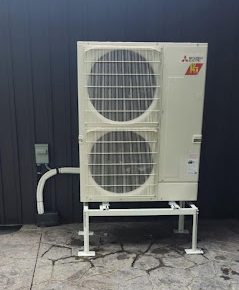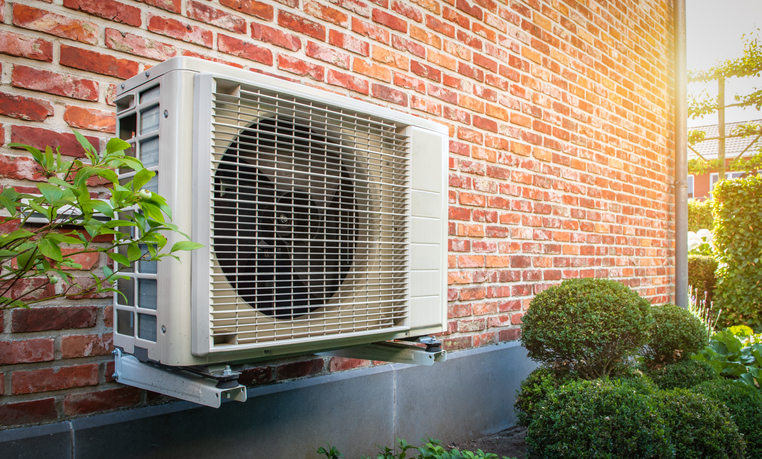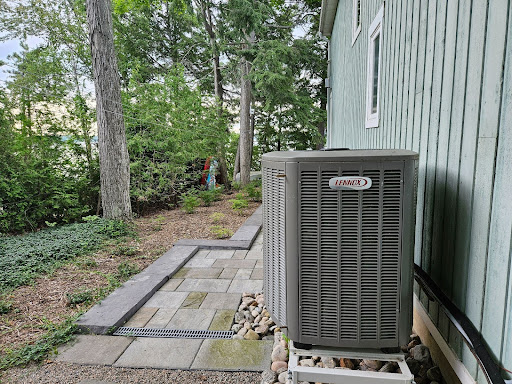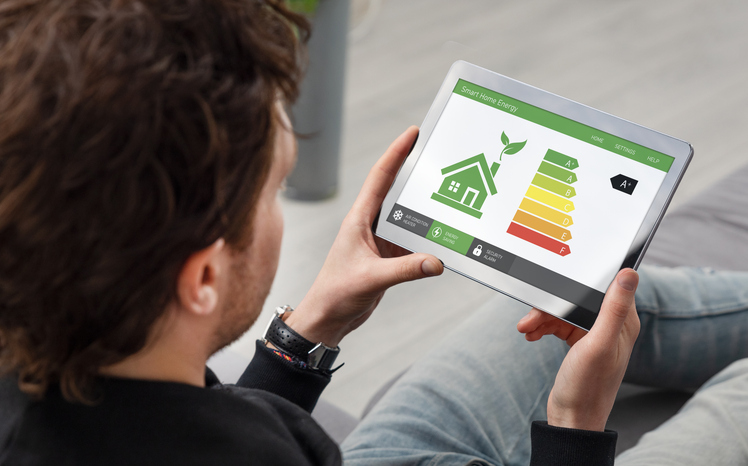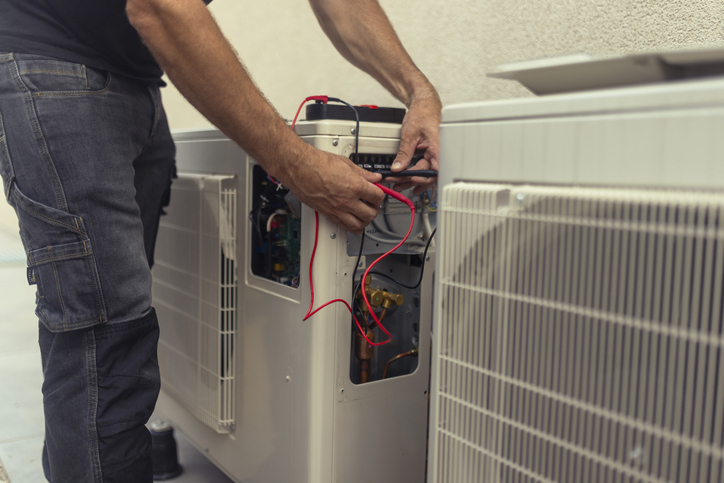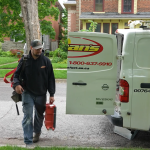Is it time to add a new air conditioner or replace your existing one? Are you frustrated with an inefficient system that just can’t keep up? Upgrade your old air conditioning unit with a heat pump system. Heat pumps are dual-purpose systems that can both cool and heat your home efficiently and reliably. We’re answering your most frequently asked heat pump questions.
1. What is a Heat Pump?
A heat pump is a versatile device that can both heat and cool your home by transferring heat rather than generating it. In the winter, it draws heat from the outside air and brings it inside, while in the summer, it removes heat from your home and releases it outside. This dual-functionality makes heat pumps a comprehensive solution, replacing traditional air conditioners, and can either be replaced or added to your furnace.
The benefits of heat pumps include their energy efficiency and eco-friendliness, making them an excellent investment for homeowners who want to streamline their home comfort systems.
2. What Types of Heat Pumps Are There?
Our team at Bryan’s Fuel can help you choose the best type of heat pump for your home, ensuring optimal performance and energy savings. There are two types of heat pumps available, each offering unique benefits.
Air Source Heat Pumps
Air source heat pumps, the most common type, transfer heat between your house and the outside air. They are easy to install, highly efficient, and provide year-round heating and cooling. These systems are generally less expensive to install than other types, making them a cost-effective way to improve your home’s energy efficiency. Air source heat pumps are available in ducted or ductless versions, making heat pumps a great solution for houses that do not have existing ductwork.
Ground Source (Geothermal) Heat Pumps
Ground source or geothermal heat pumps use the earth’s stable temperature for heating in winter and cooling in summer, making them highly efficient. Though they have higher installation costs due to the need for underground loops, their efficiency can lead to significant long-term energy savings.
3. Are There Rebates for Heat Pumps?
Yes, there are currently some rebates available in Ontario for installing energy-efficient heat pump systems. These incentives can help to reduce the upfront cost, making the switch to a heat pump even more attractive. Current savings include government energy rebates and manufacturer promotions. The most helpful grants for our customers include the Oil to Heat Pump Affordability Program and Enbridge’s Home Efficiency Rebate program.
4. What Can a Heat Pump Replace?
Heat Pumps vs. Air Conditioning Units
An air conditioner only cools your home, while a heat pump can both heat and cool. This dual functionality makes heat pumps a more efficient and versatile option. In contrast to an AC unit, a heat pump can provide year-round comfort by switching between heating and cooling modes as needed.
Heat Pumps vs. Furnaces
A heat pump can serve as a direct replacement for a traditional furnace by using either a cold climate system or a standard heat pump with electric resistance backup heat. A heat pump can also be paired with an existing furnace in a hybrid system. In this setup, the heat pump handles the heating needs to a set temperature, while the furnace provides supplemental heat during colder periods. Heat pumps are also more energy-efficient and environmentally friendly, reducing your home’s carbon footprint.
5. Does a Heat Pump Cost Less to Run?
Heat pumps cost less to run than traditional fossil fuel furnaces, primarily due to their higher energy efficiency. Unlike furnaces that generate heat by burning fuel (propane, natural gas, oil), heat pumps transfer heat from the outside air or ground into your home. This process requires significantly less energy because it merely moves existing heat rather than creating it. This efficiency results in lower long-term operational costs for homeowners.
6. How Often Should I Schedule Heat Pump Maintenance?
Regular maintenance ensures your heat pump operates efficiently and has a long lifespan. We recommend scheduling maintenance at least twice a year—once before the heating season and once before the cooling season. Regular inspections, timely filter changes, and professional servicing are essential maintenance tips to keep your heat pump performing optimally year-round.
Heat pumps are not a one-size-fits-all solution, many factors need to be considered. A Home Comfort Advisor can assess your specific situation, recommend the most suitable options, and ensure that the installation is done correctly for optimal performance and efficiency.


